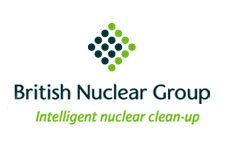LONDON: The cost of decommissioning the U.K.’s ageing nuclear power plants is estimated around 70 billion pounds, which is 14 billion pounds higher than previous estimates, the Nuclear Decommissioning Authority announced Thursday.
An authority spokesperson said the agency now estimates the cost to be about 63 billion pounds and “there is potential for a further 7.5 billion due to issues like contaminated land”.
The new estimated costs were published by the authority, set up in 2005 to handle the breaking up and cleaning of the 20 civil public sector nuclear facilities, including Sellafield and Dounreay.
The authority’s chairman Sir Anthony Cleaver said these are the best estimates that “responsible engineers can come up with”.
The authority has targeted to decommission most of the sites in 25 years, rather than the 80 years previously planned. The first decommissioning contract will be awarded in 2007 at the low-level nuclear waste repository at Drigg, near Sellafield. Contracts for Berkeley, Bradwell, Hinkley Point A, Dungeness A and Sizewell A will be awarded in 2008.
Experts believe the higher projected costs will impact the government’s energy review, which includes possible construction of new nuclear plants. Opponents of nuclear plants have been making effective use of the cost of decommissioning and the hazards involved in the act as a main plank.
The entire decommissioning process will depend on a report by a panel, which is looking into building of a new repository for lower level nuclear waste. The report is expected this summer.
It is estimated that the decommissioning of Sellafield, which is supposed to having the highest level of nuclear contamination , will take 75 years.
Meanwhile, the government has decided to go ahead with the sale of British Nuclear Group (BNG), the clean-up unit belonging to public sector British Nuclear Fuels Ltd, which is the main customer of the authority.
Trade and industry secretary Alan Johnson said the sale process would begin along with the issuing of a new five-year contract for the Sellafield complex. He said the authority and BNFL will work together on the sale, which is expected to be completed by autumn of 2007.
The decision will mean that the authority and BNG’s new owner will operate the reprocessing plant of Sellafield nuclear complex.
BNG may fetch around 1 billion pounds for BNFL and U.S. companies like Halliburton and the Washington Group are seen as possible buyers.
Sellafield has capacity to reprocess around 5,000 tonnes of spent nuclear fuel a year, around a third of annual world production. The plant had a huge fire some 50 years ago, which forced the closure of the Windscale I military reactor. Scientists have been trying to work out a method to dismantle the chimney-top filter that had trapped the radioactive smoke and stopped a nuclear catastrophe.
BNFL had earlier this year sold its U.S. nuclear construction unit Westinghouse Electric Co., to Japan’s Toshiba Corp. for around $5 billion.
The government’s announcement also confirmed the sale of 33 per cent holding the government has in Urenco, a uranium-enrichment business owned jointly with the Dutch and German governments.



 Bitcoin
Bitcoin  Ethereum
Ethereum  Tether
Tether  XRP
XRP  Solana
Solana  USDC
USDC  Cardano
Cardano  TRON
TRON  Lido Staked Ether
Lido Staked Ether  Toncoin
Toncoin  Avalanche
Avalanche